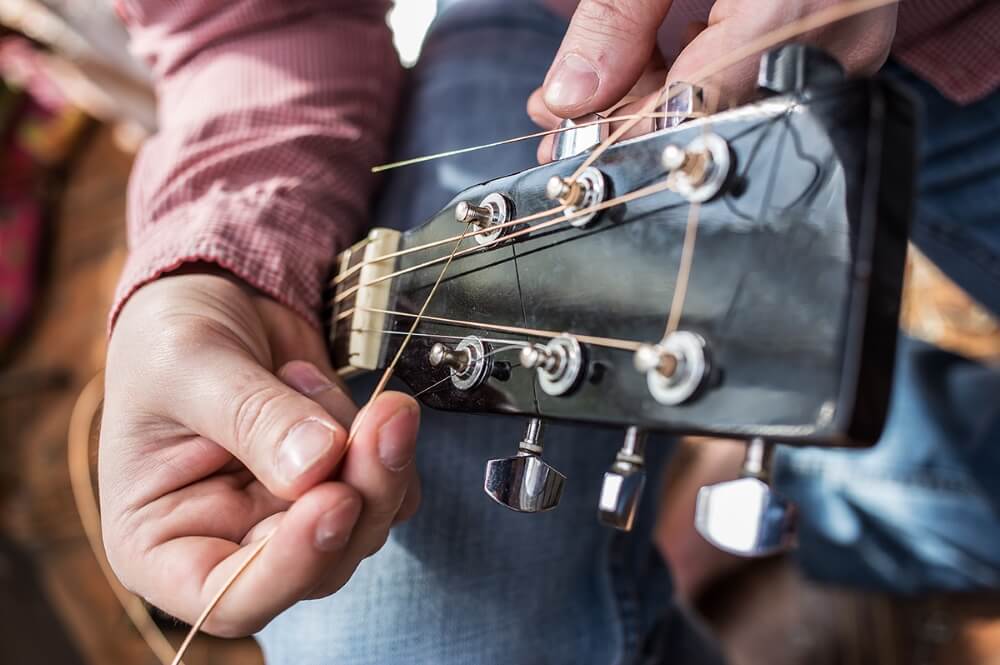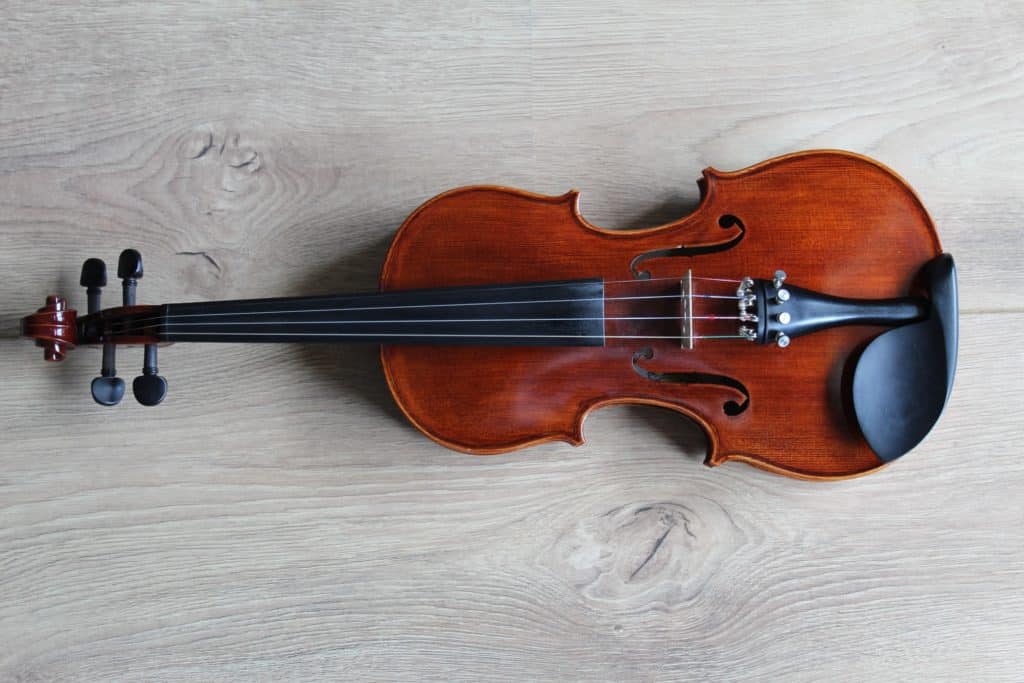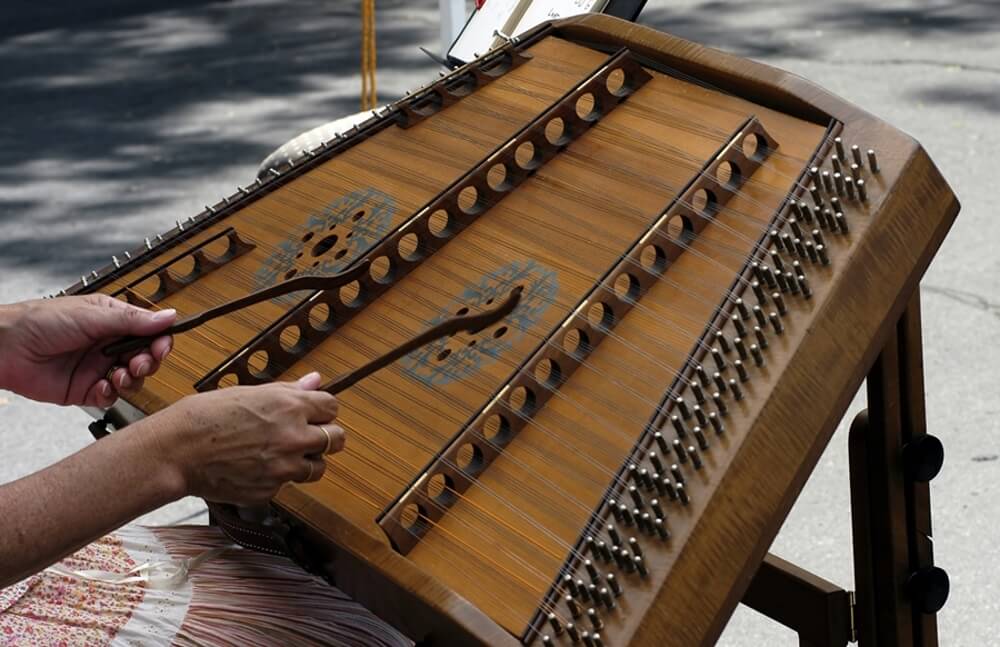Wolfgang Amadeus Mozart was one of the greatest music composers of Western music history. At the tender age of five, he began composing and became a multi-instrumentalist. However, he was highly regarded for his ability to play piano and violin.
When he was only six, he went on a family tour and started performing across all of Europe. His father was a prominent violinist, and he instantly recognized his child’s musical ability. He trained his children in violin and clavier.
Let’s have a deeper look into who Wolfgang Mozart was before we talk about what instruments did Mozart play.
Who is Mozart?
Back in 2006, the music world celebrated the 250th birthday of Wolfgang Amadeus Mozart, who was born on 27th January 1756 Trusted Source Wolfgang Mozart - Requiem, Facts & Death - Biography A prolific artist, Austrian composer Wolfgang Mozart created a string of operas, concertos, symphonies and sonatas that profoundly shaped classical music. www.biography.com . He was an extraordinary child prodigy with his music skills, especially while playing piano and harpsichord. He was also an expert in playing the violin and viola.
In Salzburg, where Mozart was born, you can see the viola he used to play on exhibition. Apart from being a prodigy, he consistently shows his greatness as a composer throughout his life. Mozart wrote all music genres that existed during his time, and he excelled in all of them.
His father, Leopold Trusted Source Leopold Mozart - Wikipedia Johann Georg Leopold Mozart (November 14, 1719 – May 28, 1787) was a German composer, conductor, music teacher, and violinist. Mozart is best known today as the father and teacher of Wolfgang Amadeus Mozart, and for his violin textbook Versuch einer gründlichen Violinschule. en.wikipedia.org , found out what an asset Wolfgang was when he wasn’t even six. He started traveling to make his son play in front of empress, kings, and princes, along with other people of high ranks.
On his many journeys to London, Munich, Milan, Paris, Rome, Bologna, which were only a few of his earlier ones, in the year 1779, Mozart visited Mannheim at just 23. This place was the home to the famous orchestra and the popular Mannheim School. Many music players and composers work there during those times, including the Stamitz family.
Leopold took Wolfgang along with his sister Marie Anna to perform. Wolfgang lived in many of these cities and spent his life as a performer, composer, and teacher in the latter part of his life.
During those times, Wolfgang wrote the Sinfonia Concertante for viola, violin, and orchestra. It was one of the most beautiful and touching music works involving viola.
Wolfgang Mozart was an expert musician, and he played a range of different instruments. And in this post, we will have a brief look at what instruments did Mozart play.
What Instruments Did Mozart Play?
Mozart created more than 40 concertos and what’s even more astonishing is that he wrote for a range of different musical instruments. These include flute, horn, violin, piano, bassoon, harp, clarinet, trumpet, and oboe.
He could recreate music from his memory even if he heard a tune somewhere. Once, this happened on one of these tours of Rome. He heard a performance of Allegri’s Miserere in the Church of St. Peter’s.
This piece was the exclusive property of the Vatican, and nobody could have written its copy. But just by listening to it once, Mozart came back home and wrote it entirely from his memory.
Mozart was frequently commissioned to write for musicians during that time to show their skills and expertise. But Mozart had his preferences of instruments, and the flute was one of his least preferred instruments.
People found him the best while playing piano or harpsichord. Keyboard instruments were his choice for composing, accompanying, and performing different types of music.
Wolfgang Mozart played a variety of musical instruments throughout his life. And we will discuss each of them briefly in the following text.
Organ
Wolfgang Mozart began his musical journey when he learned how to play the organ back in Ybbs. He later learned to pedal board as he used to stand on top of it at the tender age of 7.
Due to his talents, he started performing in Heidelberg’s Church of Holy Ghost, the Antwerp Cathedral, Haarlem’s Church of St. Bavo, and Verona’s Church of St. Thomas. Wolfgang continued working, composing, and playing for churches and courts that would later sponsor him.
Mozart was a highly talented improviser, and he would demonstrate his capabilities during masses. While performing in Mannheim’s Court Chapel, he states that he transformed different parts of traditional Christian worship into complicated fugues.
It astonished the members of the congregation gathered there. One of Mozart’s students, Thomas Attwood, states that Wolfgang added pedals to his fortepiano just out of fascination for the polyphonic musical structures of Johann Sebastian Bach.
Viola
Some say that Mozart used to prefer playing viola out of all of his instruments. Mozart’s viola was crafted in Italy, and it is now a property of Salzburg’s Mozarteum Foundation. It’s interesting that Wolfgang only composed viola in the ensemble.
But his literature for the same also included viola and violin duets, clarinet, piano trios, string quintets, trios, and viola. In most of his work, he gives special attention to the viola section, and often he gives it independent melodies and pushes the musical capabilities of this instrument.
He didn’t compose anything for solo viola; his Sinfonia Concertante is a famous viola and violin duet with orchestra. Another interesting work is the Kegelstatt Trio which features a colorful interplay of piano, clarinet, and viola.
Clavichord/Harpsichord
Back in the Baroque era, the harpsichord was a keyboard instrument, and it was also Mozart’s favorite. He preferred using it while performing, composing, and accompanying different styles and genres.
On the other hand, the clavichord had more dynamic capabilities. But Mozart never used it in major performances because it was still a quiet instrument. You can find some works he wrote for Klavier, and people play them on piano.
Keyboard instruments’ evolution progressed quite rapidly throughout his life. You might think that Mozart would switch to the new version of an instrument soon following the development; he has been documented to play all three keyboard instruments throughout his career.
Harpsichord was still popular for operatic collaboration, and clavichord was more suitable for practicing at home as it wasn’t too extreme. Still, there were no frantic differences in the endnotes either.
Violin
Wolfgang’s father, Leopold, was a famous violinist himself. He was the creator of Versuch einer gründlichen Violinschule, a popular technical treatise.
Wolfgang played three major violins; his childhood instrument, his costa instrument, and his concert instrument. All three of these violins are now properties of the Mozarteum Foundation.
After Mozart’s Paris trip, he focused more on keyboard instruments and mainly performed on the piano when he lived in Vienna during the last decade of his life. Wolfgang produced plenty of violin literature ranging from chamber music to different works for the larger ensemble.
One famous work from this string quintet is Eine Kleine Nachtmusik (A Little Night Music). Some other important works are the five concertos that he composed back in 1775 at 19, along with the 36 sonatas for piano and violin.
Fortepiano
A lot of people ask, did Mozart play the piano? Because piano developed pretty fast during those times. As the fortepiano developed, the keyboard gained access to a wider range of dynamic expressions. Wolfgang continued playing on clavichord and harpsichord.
The fortepiano is primarily attributed to the creator, Anton Walter. However, Wolfgang’s son donated this instrument to the Foundation in 1856.
Mozart was a fan of the piano, and he played it during the final few years of his life. From 1782 to 1785, Wolfgang composed several piano concertos, and he also performed them for the public. Most of these pieces are easily recognizable, and they also appear in popular culture along with CD anthologies of highly regarded and famous classical music.
His one work in this area is the third movement of Piano Sonata #11 in A Major, K 331, which is also famous as Rondo Alla Turca, so movies and commercials have that music.
Moreover, the Piano Sonata #16 in C Major, K 545 is hugely popular among novice pianists, and it also bears the name Sonata Facile or easy sonata. Wolfgang also wrote four-hand piano literature.
Inspiration
Due to his natural talents and early training travels, Wolfgang Mozart was highly competent in different musical styles belonging to different countries. He could comfortably imitate them when he used to perform.
He wrote several successful operas. These include The Marriage of Figaro, Don Giovanni, and The Magic Flute. He also composed many sonatas and symphonies.
One of the last symphonies – the Jupiter Symphony, is the most famous, and he completed this symphony just 3 years before his death. He left Requiem in D Minor, K 626 uncompleted Trusted Source Requiem (Mozart) - Wikipedia Mozart composed part of the Requiem in Vienna in late 1791, but it was unfinished at his death on 5 December the same year. en.wikipedia.org at the time of his death, and one of his students, Franz Xaver Süssmayr, completed it.
His wide knowledge of these musical styles and different instruments made him push the contemporary music ideas in solo works, chamber music, orchestral music, and opera to new boundaries during those times.
Moreover, he was still pretty young to achieve all that he achieved was also very fascinating about his career. Wolfgang Mozart was a sensational music genius who departed too early but left his mark on the music world.
At his death, Wolfgang was eminent as the greatest music composer. However, he was also a bold and difficult composer. His Don Giovanni was dissonant and complex work along with his chamber music that called for exceptional skills for interpretation.
Some of his surviving manuscripts, including numerous unpublished works, were sold by Constanze to Offenbach’s Andre during the 19th Century.
However, Mozart’s reputation was so high that even before the end of the 18th Century, the two firms collected substantial editions of his music. Some critically essential biographies appeared on the scene in 1798 and 1828.
Constanze’s husband released the latter, the first scholarly biography produced by Otto Jahn Trusted Source JAHN, Otto Otto Jahn was probably the most versatile of nineteenth-century German scholars of Altertumswissenschaft. As a philologist he produced many exemplary editions of ancient authors, several of them with commentary. dbcs.rutgers.edu and was issued in 1856 on Wolfgang Mozart’s centenary. Kochel catalog’s first edition followed after 6 years, and the first full edition of his music started in 1877.
Final Word
The Austrian composer was highly regarded as the greatest music composer of his time and one of the best in Western music history. Mozart was highly inspired by Haydn, Mesmer, Handel, and Bach.
But Mozart brought the Viennese Classical school to new heights of achievements during his time. He wrote in all music genres during his time and excelled in all of them, unlike any other music composer in entire music history.
With that being said, Mozart never created any revolutionary music because he rarely experimented with different musical forms. He mostly recycled different structural formulations. So, he was never innovative but mastered. He perfected the current forms, and while doing so, he raised the sonata, opera, and symphony to a new height.
His later compositions and creations showed how dexterous he was as a music composer. He could convey feelings through music. He has perfected the instruments so much that he could listen to work and recreate it from his memory.
Mozart’s taste, command, and range of expression made him the most universal of all music composers. Still, this music was written to accommodate the specific tastes of different audiences.
However, there is no denying that Mozart was a sensation and a child prodigy. He achieved so much at such a young age. Too bad the world if music couldn’t hear more of his creations due to this early demise.















